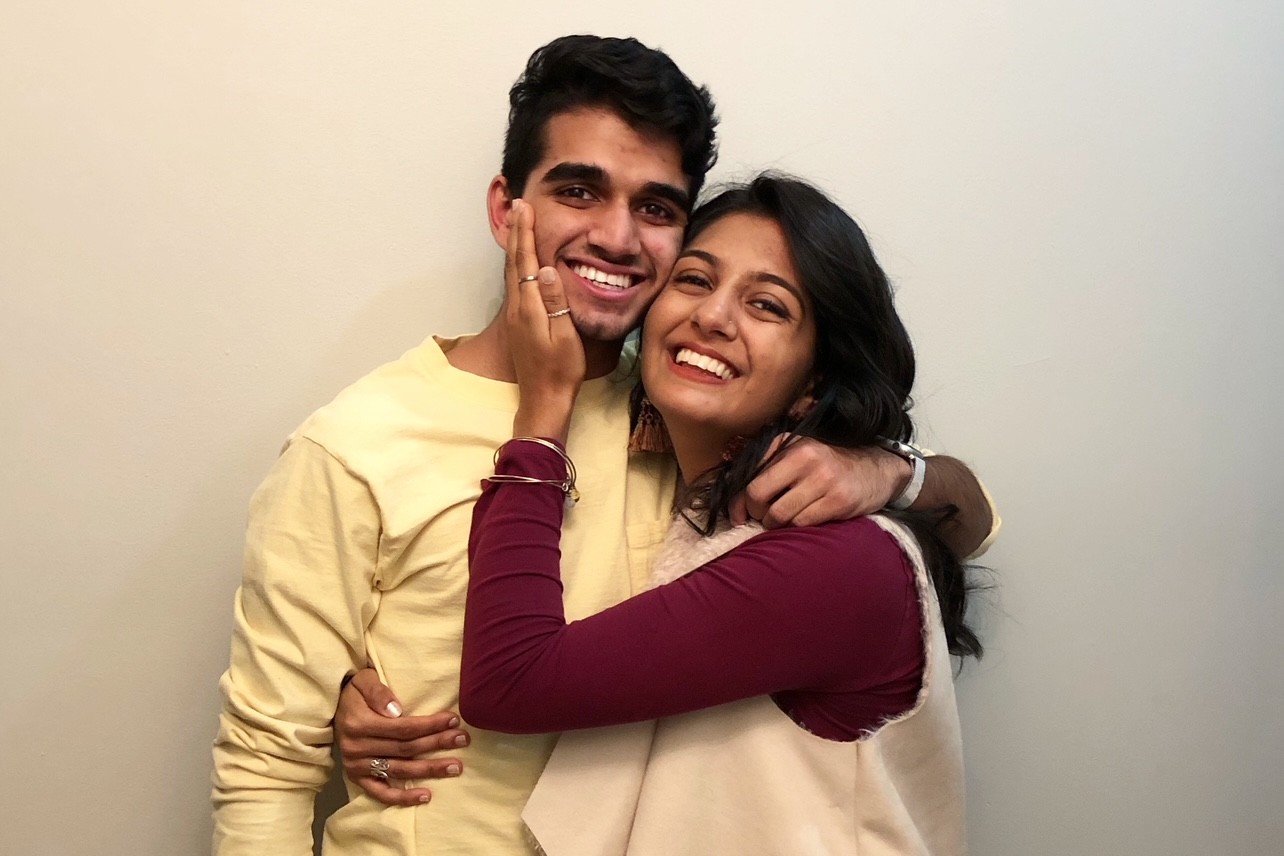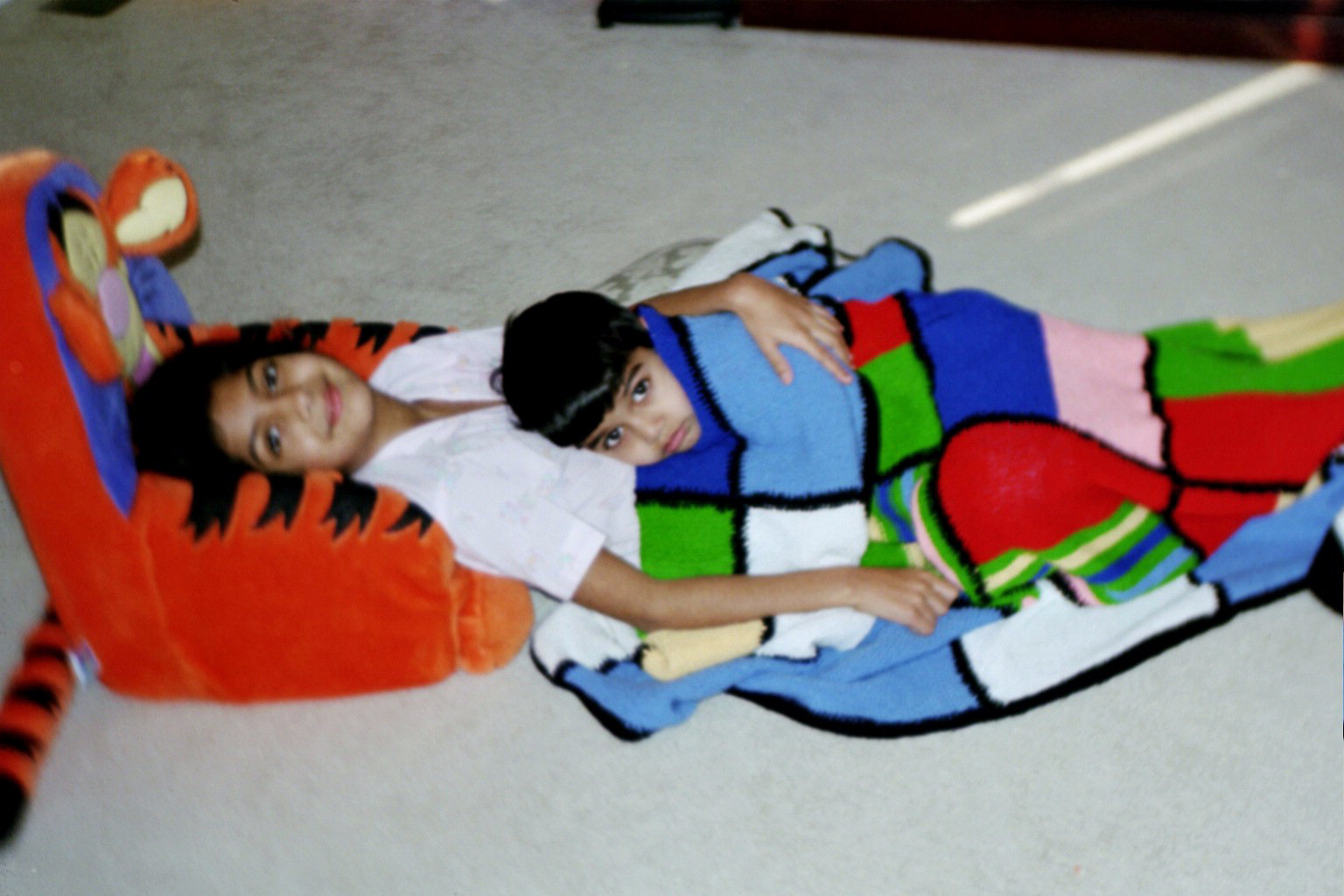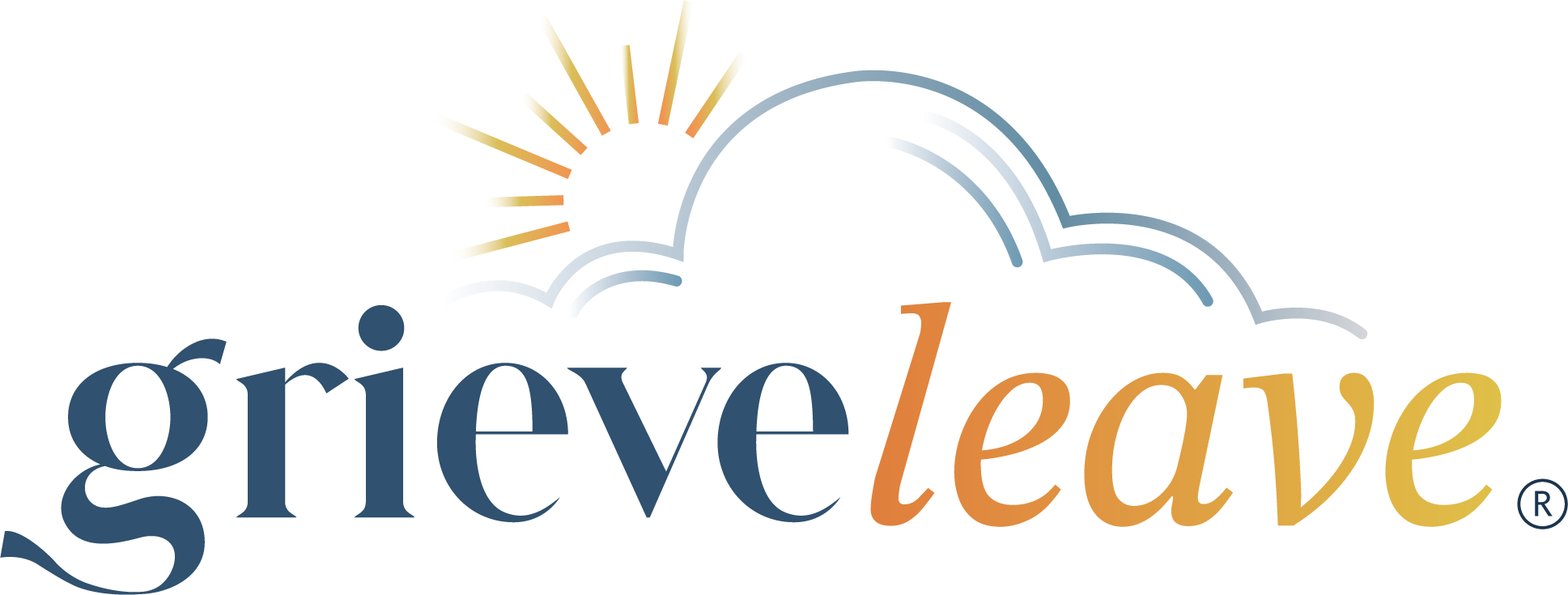Grieve Leave Community Blog: International Survivors of Suicide Loss Day
.png)
International Survivors of Suicide Loss Day happens every year on the Saturday before American Thanksgiving. It’s not a very well known day--I first heard about it in 2016, a full three years after starting my journey as a mental health advocate and only after a friend of mine died by suicide. I remember when I went to the Survivors Day Walk with her family, I was taken aback by the word “survivor.” Wasn’t that a bit intense? Wouldn’t “touched by” or “impacted by” be better?

And then my brother Raj died by suicide on March 27th, 2020. And the aftermath of losing him reinforced that the word “survivor” was intense, but it was also 100% accurate.
Growing up I experienced some forms of loss and the grief that comes with it--the death of an elder, distant family member, a rejection that changed the path you thought you were taking, breakups and betrayals from best friends and boyfriends. But this was different. This was the loss that shattered my world beyond recognition. This was the grief that consumed me like nothing else ever had. And the method, a suicide--this was what made me realize how hostile the world is to stories like mine.
I’ve never known what it is like to watch a parent slowly get taken from you by dementia, or to hear that your child got into an accident on his way home from soccer practice and won’t be coming home ever again. Despite that, when I came across those stories, I could give my heart out to them, offer words and gestures of support, to carry some of the weight. So why couldn’t I get the same? Why did my story make people tense up and take a step back, in a way that nobody else’s did? Why was it acceptable to tell me to find comfort in the fact that “he chose this,” when you would never dare say that to the families of the smoker who died from lung cancer or the soldier who died in combat? Why were people more likely to ask me how he did it instead of asking how I was doing?
Why did the fact that the cause of Raj’s death was suicide make me and my family less deserving of care and support? Why did him ending his own life make me, who has lived with mental health conditions for half my life, want to end my own for the first time?

The word “survivor” is intense, but it is also 100% accurate. I have never been so close to dying as I was in the aftermath of my brother’s suicide. And I wish my story was an anomaly, but the truth is, study after study shows that suicide loss survivors have a significantly higher risk of premature death, particularly by suicide themselves, compared to individuals bereaved by other causes. The feelings of loss, sadness, and loneliness we all feel after any death of a loved one are compounded by the guilt, confusion, anger, and trauma that come with a suicide loss. Pair that with the general lack of support and healing from people and resources, and add in the stigma of it all, and it’s no wonder that we say those affected by suicide loss are survivors.
This is my fifth survivor’s day as a member of the community and I’m going to be honest--getting here hasn’t been easy, but every day I am so grateful that instead of finding ways to end my life, I found ways to stick around. I still find myself grappling with the complex grief of Raj’s death. But now I get to lean into friends and family who have chosen to learn how to sit with me in it. I still find myself isolated in conventional grief support spaces. But now I can choose to instead be in spaces specific to suicide loss survivors. I still encounter people who want to minimize my experience because it was a suicide. But now I can engage in a way that makes it clear that the moral failure here is not in the act of suicide, but in how we regard those who are left behind.
.jpeg)
The word “survivor” is intense, but it is also 100% accurate. But I am hopeful for a world where that’s no longer the case. And that starts with you. If you know someone who has lost a loved one to suicide, lead by example in giving them the support and care and compassion they deserve. If you are a friend or family member of a survivor, be there for them, even when it sucks, even when it’s hard, even when “they should be over it by now.” And if you have lost a loved one to suicide--god I’m sorry you’re here. I know how hard it is to find a reason to keep going, much less the resources to get you there. But you are deserving of care and support. You are not alone. And on behalf of the over 1 billion members of the survivors community worldwide--thank you for making the choice to stick around. Suicide loss sucks, but the world is better because you’re a survivor.
Resources
Navigating a suicide loss is hard, but having spaces and communities tailored to survivors helped immensley in my healing. Here are some resources that might help make this journey a little easier for you.
Resources That Personally Helped Me (and still do!):
- Triangle Survivors of Suicide Group: https://www.trianglesos.org/
- Coping After Suicide Groups: https://www.copingaftersuicide.com/
- The Kita Center: https://www.thekitacenter.org/
- My therapist(s). I use Psychology today to find therapists in my area who take my insurance, and specifically ask in the outreach email if they have experience helping clients with complex grief from suicide loss.
Resources That I Trust:
- Samaritans Hope https://www.samaritans.org/
- Compassionate Friends https://www.compassionatefriends.org/
- Anything endorsed by AFSP https://afsp.org/suicide-loss-resources/



.png)
.png)
.png)